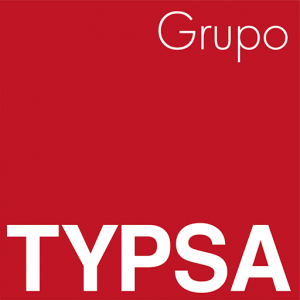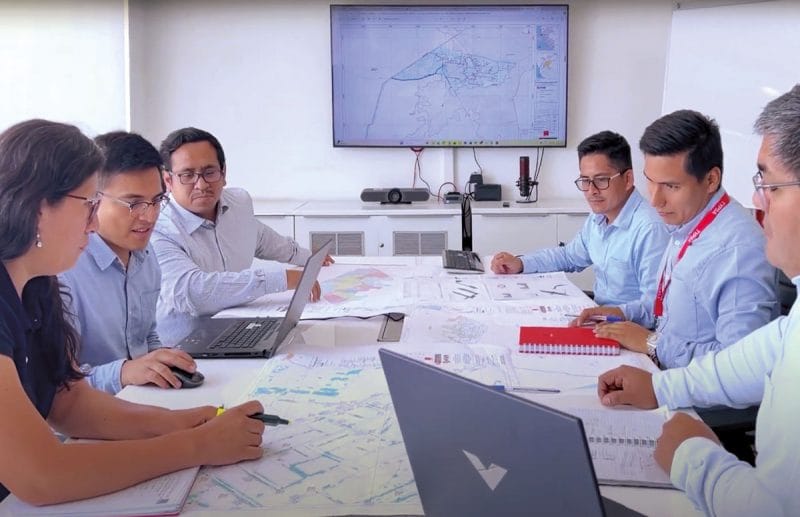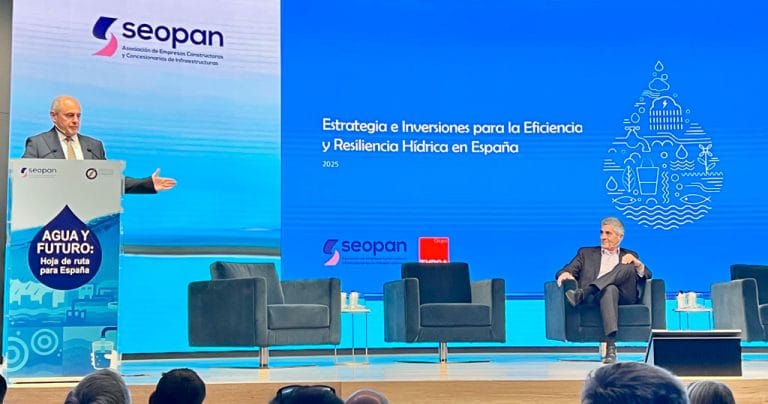Until 2010, Spanish criminal law was based on the principle societas delinquires non potest, in other words, a society cannot commit crimes, attributing this capacity exclusively to individuals. In order to prevent corporations from hiding behind the acts of individuals who operate within them to evade responsibility, the laws of many countries (France, Portugal, Chile, Peru, Mexico…) introduced the criminal liability of legal entities. Thus, in 2010, for the first time, the Spanish Penal Code recognised, in its article 31 bis, that companies can be criminally responsible.
In those years, TYPSA was already consolidated as an international reference in the field of engineering and consulting and operated in accordance with the principles established in the Code of Ethics of FIDIC (International Federation of Consulting Engineers). As part of its commitment to integrity, in 2013, TYPSA joined the United Nations Global Compact and adopted its own Code of Ethics aligned with its 10 principles in terms of human rights, labour, environment and the fight against corruption.

The year 2015 marks another turning point in the Spanish context with the introduction into the Criminal Code of a possible exemption for companies if they prove that, before the commission of the crime, they had implemented an adequate compliance model to prevent crimes or significantly reduce risk. Although these regulations came into effect, it took a while for the prosecutors’ interpretation to clarify the features required for these systems to be considered effective or appropriate.
Under these circumstances, the Board of Directors of TYPSA, in its capacity as the company’s highest governing body, approved in December 2017, the adoption and implementation of an Integrity Management System (“IMS”) and the constitution of a registered, autonomous and independent body (Compliance Committee), responsible for ensuring compliance with that system together with its continuous improvement.
As a member and president of the Compliance Committee established that year, I have had the opportunity to be part of the evolutionary process that compliance has experienced, both internationally and at TYPSA. Thus, in 2019, we became the first Spanish engineering firm to obtain the ISO 37001 certification for Anti-Bribery Management Systems. Since then, the TYPSA Integrity Management System has undergone changes and improvements and has been consolidated not only in Spain, but also in the branches, being additionally a source of inspiration for our subsidiaries.
The year 2022 marked another milestone in the life of our system, as the main supporting documents were profoundly modified, mainly: the Code of Ethics, the Corporate Integrity Policy, the Gift Policy, the Declaration of Modern Slavery, the Integrity Management Manual and the procedures of the Integrated Management System, in the area of Integrity.
In 2023, the entry into force and subsequent transposition into national law of the so-called Whistleblower Protection Directive meant the adoption by all the Group’s companies of a single channel for the communication of potentially irregular events, as well as the appointment of a single person responsible for managing this channel, in this case, the TYPSA Compliance Committee. In addition, the Policy on the Internal Information and Whistleblower Protection System was adopted, which establishes the guarantees for people who use this channel in good faith have the appropriate tools to report situations, without fear of retaliation.
In addition, the knowledge of the content of the IMS by all the staff of the TYPSA Group is an essential condition for achieving the intended objectives; hence the importance of training and self-evaluation procedures that are carried out periodically, as well as the staff commitments to comply with the IMS. Currently, more than 1,800 employees have been trained through our internal platform.
Furthermore, year after year we have been making progress in the implementation of the system, extending it to branches and, in the case of subsidiaries, with their own compliance models applying local legislation in each case. Currently, all the entities of the TYPSA Group share the main documents of the system and all their managers have signed declarations of the absence of conflicts of interest. In addition, branches in Peru and Chile have certified their Integrity Management Systems to ISO37001, progress is being made in the certification of MEXTYPSA and in obtaining the Integrity Seal for the TYPSA branch in Paraguay, demonstrating the company’s commitment to transparency, ethics and the prevention of bribery.
 TYPSA offices in Lima, Peru
TYPSA offices in Lima, Peru
The automated use of an order and invoice management system, which is key to control, traceability and operational centralisation, has been implemented in a context characterised by a high volume of transactions in the company. Additionally, due diligence procedures for employees at different stages of business opportunities or the use of contractual models that include integrity clauses, allow us to extend our commitments to partners and subcontractors, guaranteeing our proactivity in the consolidation of a corporate ethical culture that transcends the internal scope of the company.
Another issue in which significant progress has been made is the adoption of a new methodology for the preparation of the Risk Map, which is the cornerstone on which the system is built, and which is regularly updated to identify, evaluate and prioritise risks related to non-compliance with laws, regulations or the company’s own internal policies at each stage of TYPSA’s activities. This new methodology will be extended to the rest of the Group’s subsidiaries and branches, as well as to the TYPSA Foundation for Development.
Finally, on September 1st, the Independent Authority for the Protection of Whistleblowers was launched nationally. As we have already mentioned when we talked about the internal information channel, in our case, the body responsible to that Authority is the Compliance Committee. The existence of such authority represents an additional guarantee of protection to those already existing in our procedure, for those who report in good faith facts of potential crimes.
We all know that zero risk does not exist, but we also know that we cannot let chance decide when and how we may suffer criminal or reputational harm. For this reason, even if it sometimes increases the daily work of TYPSA employees, I have been able to verify in these eight years of experience in integrity, the principal will of everyone part of the TYPSA Group to incorporate Compliance guidelines and controls into the procedures of the company’s activity. TYPSA has achieved an exemplary, effective and efficient Integrity Management System that protects us in the development of our business activity
Today, more than ever, integrity is an intangible value that surrounds the people employed, the business activity and therefore the good reputation of the TYPSA Group, strengthening its position in the markets and before institutions and governments around the world. It is in our hands to maintain and, if possible, improve, the excellence achieved.



 TYPSA offices in Lima, Peru
TYPSA offices in Lima, Peru

